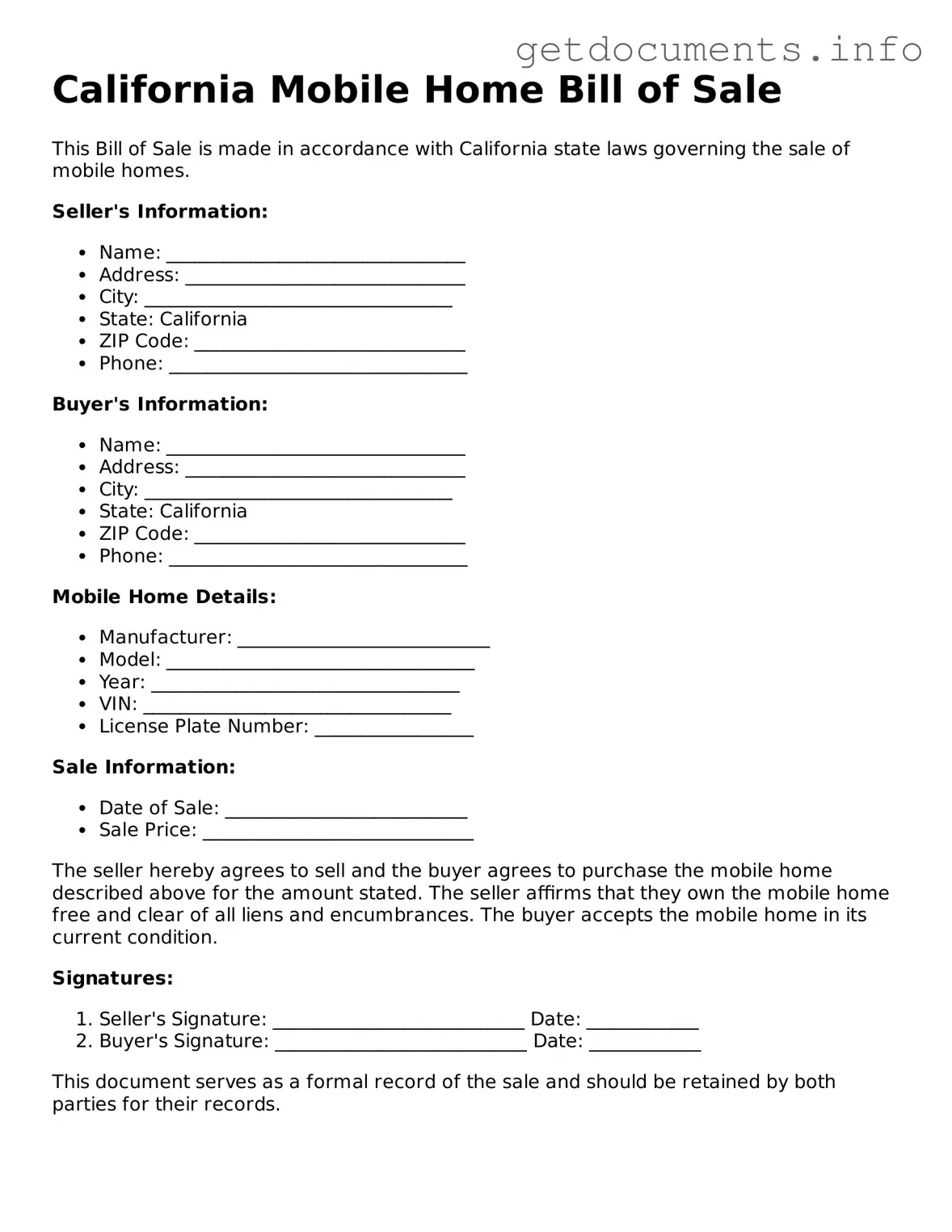Free Mobile Home Bill of Sale Template for California
The California Mobile Home Bill of Sale form is a crucial document that facilitates the transfer of ownership for mobile homes in California. This form not only provides a record of the transaction but also helps protect the rights of both the buyer and the seller. To ensure a smooth transfer process, it’s essential to fill out this form accurately and completely.
Ready to complete your transaction? Click the button below to fill out the form!
Access Mobile Home Bill of Sale Editor

Free Mobile Home Bill of Sale Template for California
Access Mobile Home Bill of Sale Editor
Got places to be? Complete the form fast
Fill out Mobile Home Bill of Sale online and avoid printing or scanning.
Access Mobile Home Bill of Sale Editor
or
⇩ PDF File
